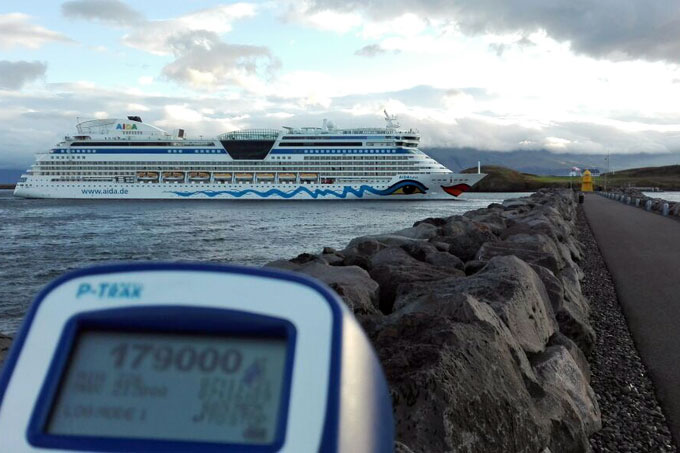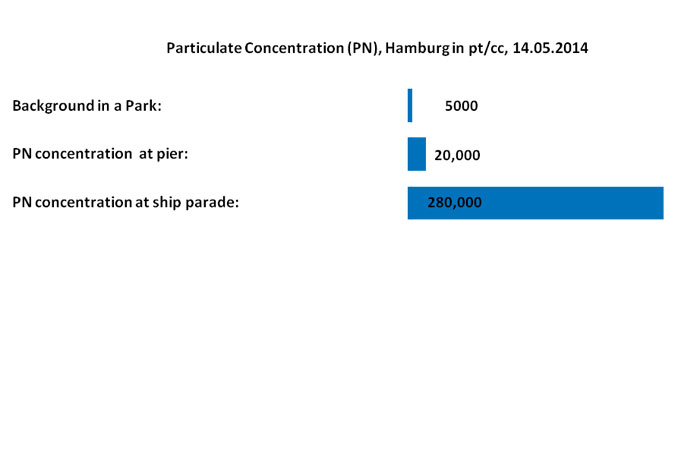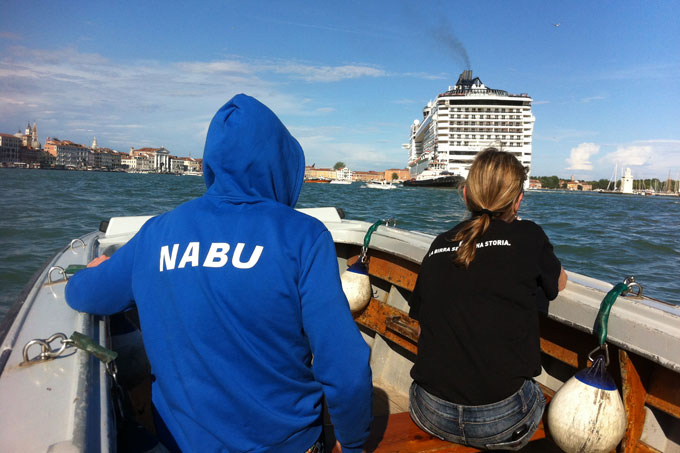Measurement air pollution - Foto: Sönke Diesener
NABU measures air pollution from cruise ships
Measurements show high concentrations of ultrafine particles in ambient air
Irrespective whether cruise or container ships, ferries, tug or excursion boats – ports gather a broad range of fuming smokestacks, which emit a great deal of air pollutants. Although ships are meanwhile obliged to use fuel with a much lower sulphur content while at berth compared to what is burnt on the open seas, the bunker’s quality still lags behind diesel used by cars. What is even worse is that almost no ship uses exhaust gas abatement technology like it is a standard for cars and trucks for years. That is why ships cause enormous amounts of health affecting air pollutants like particulate matter, soot and nitrogen oxides. Neither ship owners nor port authorities take effective, sufficient and comprehensive measures in order to protect local residents from toxic exhaust gases, even though this would be technically feasible. However, a switch to low sulphur fuel combined with the installation of particulate filters and SCR catalysts would reduce air pollution by up to 99,9%.
In order to document the air pollution NABU did air quality testings in different port cities, in particular next to cruise and ferry terminals. No matter if Hamburg, Venice, Barcelona or Bergen: All ports showed a similar result which gives rise to concern. The levels of ultrafine particulates (a subgroup of particulate matter), which are especially harmful for human health in the ship’s exhaust gases were up to 100 times above the normal load, the so called background pollution. Compared to what has to be considered as „clean air“ the particle numbers exceeded the concentration level by more than a factor 400. While 1,000 particles per cubic centimeter are harmless, NABU’s scientist found up to 400,000 (pt/cm3) next to the terminals. Air pollution levels like this even surpass concentrations next to main roads with dense traffic between 50 to 80 times. As ports are often located in city centers or close by cities, their air pollution endangers many people’s health. Particulate matter causes and worsens coronary and pulmonary diseases. There are no numbers for port cities in particular, but studies show that about 50,000 people in Europe die prematurely because of the ship emissions emitted in European high-seas.



